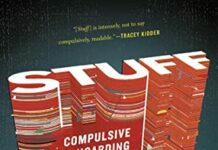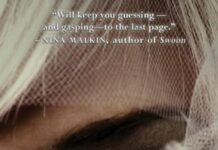
Ebook Info
- Published:
- Number of pages:
- Format: Epub
- File Size: 0.26 MB
- Authors: Eleanor Catton
Description
A teacher’s affair with his underage student jolts a group of teenage girls into a new awareness of their own power. Their nascent desires surprise even themselves as they find the practice room where they rehearse with their saxophone teacher is the safe place where they can test out their abilities to attract and manipulate. It seems their every act is a performance, every platform a stage. But when the local drama school turns the story into their year-end show, the real world and the world of the theater are forced to meet. With the dates of the performances–the musicians’ and the acting students’–approaching, the dramas, real and staged, begin to resemble each other, until they merge in a climax worthy of both life and art.
User’s Reviews
Editorial Reviews: From Publishers Weekly Theater, says one of the characters in Catton’s shrewd if turgid debut, is a concentrate of life as normal. This idea must be embraced in order to enjoy a novel in which the characters speak and act as if on stage. The girls at the Abbey Grange school are shocked by an affair between a teacher and a student, but Catton aptly observes that they are mostly disappointed by being only peripherally involved in such delicious drama. The girls confide in their saxophone teacher, a puppet-mistress straight out of Notes on a Scandal, who becomes intent on orchestrating a relationship between two of the girls when not delivering monologues on teaching and the psychology of teenage girls. A subplot follows bland first-year drama student Stanley and his increasing involvement with a group of Abbey Grange students focused on staging a play that will also provide a convenient narrative collision point. The novel’s real subject is the performance of human life, and in this respect, Catton’s choice of adolescent girls and drama students is apt, though the cast is limiting and their revelations repetitive. It’s a good piece of writing, but not an especially enjoyable novel. (May) Copyright © Reed Business Information, a division of Reed Elsevier Inc. All rights reserved. From Booklist *Starred Review* Written as her master’s thesis in creative writing, New Zealand author Catton’s first novel was shortlisted for the Guardian First Book Award. Considering the author was only in her early twenties when she wrote it, The Rehearsal is a tour de force that tells two stories simultaneously while delighting in doubles, parallels, and couples. The first story is of the sexual abuse of a high-school girl by her adult (male) music coach; the second is of how a neighboring drama school adopts this incident as the dramatic core of its year-end performance. Performance is the operative word here, for the two stories, which gradually come together, are presented scenically (some complete with stage directions) with dialogue that is less human speech than declamation or dramatic monologue. Readers are invited to consider that adolescence is a rehearsal for adulthood, various characters trying on personae and emerging sexual identities as they might costumes for a performance. Linking the girls’ stories is their female saxophone teacher, a powerfully realized character who serves as surrogate analyst and stage manager of their lives. That scenes are often presented nonchronologically, plus the fact that the line between performance and reality grows increasingly blurred, renders this a challenging and sometimes overintellectualized read, but the combination of beautiful writing and inventive, nontraditional structure still make it a dazzling debut. –Michael Cart Review PRAISE FOR THE REHEARSAL: “This is a mesmerizing, labyrinthine, intricately patterned and astonishingly original novel. It’s really something else entirely. I suppose if you need a point of reference, you might say it’s as if Miss Jean Brodie got lost in Barth’s funhouse. But really it has no comparison. With The Rehearsal you get the style, the sophistication, the boundless possibility and the narrative pleasures that make up any good novel, but you get a bonus, too: a glimpse into the future of the novel itself.” (Joshua Ferris)”A wonderful debut by a truly exciting new writer–The Rehearsal is compulsively good and while at the same time being immensely readable it also continually calls into question the relationship between so-called ‘reality’ and fiction, and the very nature of truth itself.” (Kate Atkinson)”Dazzling….This astonishing debut novel is a cause for surprise and celebration: smart, playful and self-possessed, it has the glitter and mystery of the true literary original….wherever the book falls open it’s near-impossible to put down.” (Guardian)”Uncommonly witty and bold….[The Rehearsal has] a real knack for narrative and a cast of painfully familiar teenage characters who are all desperate to be as confident, cool, charismatic and funny as possible. These are qualities that the extraordinary Eleanor Catton has in spades.” (The Times of London)”Startlingly original.” (Time Out of London)”The Rehearsal is a significant debut novel from an exciting young writer. Eleanor Catton is a new talent who has arrived fully formed, with an accomplished, confident and mature voice. This is a startling novel, striking and strange and brave.” (New Zealand Listener)”This is a daring book, full of velvety pleasures but never afraid to show its claws. Eleanor Catton is crazily talented and insightful–and best of all, she makes language seem new.” (author of Not Her Real Name and Other Stories Emily Perkins) About the Author Born in Canada and raised in New Zealand, Eleanor Catton is a student at the Iowa Writers’ Workshop in Iowa City, where she now lives. Read more
Reviews from Amazon users which were colected at the time this book was published on the website:
⭐Though this first novel is structurally challenging, the author keeps the tension high in her juxtapositioning of scenes that do not permit the reader to ascertain whether they are witnessing reality or performances – replicas. Ostensibly, the primary concern is to resolve the alleged seduction of a senior student at an all-girls school, Abbey Grange, by a band teacher; but then there is the possibility that the teen-ager has precipitated the situation through purposeful usage of her nubile charms. Eschewing the conventional path of detailing a police investigation, the author dramatizes the event through the vehicle of a play produced by college-aged students at an adjacent drama institute. The subjectivity and arbitrariness of artistic interpretation and persuasiveness are now injected into the entire scenario in addition to the near impossibility of gauging whether scenes and dialog stand outside the play or are a part of it. Given its innovative approach, this novel does require sharp attention.At the drama school, the students are literally forced to “peel” away social veneers and defenses and to embrace authenticity, including a willingness to reveal one’s most intimate moments. The school has departments of Acting, Improvisation, Movement, Voice, etc. The instructors are almost harsh in their demands, looking for ways to humiliate. Yet exercises in role playing underscore that actors play parts, which are seldom coincident with searches for truth. One student realizes that “Theater isn’t real life, and it isn’t a perfect copy of real life. It’s just a point of access.” This is the sort of training and mindset that are the basis of the drama students’ construction of a play to elucidate what happened at the girls’ school.On the other hand, the teen-age girls at the school seek to become worldly, game playing and posturing being part of the process. They may have budding sexual prowess, but are apprehensive of how to advance to womanhood, which explains their cliquishness and conformity and their ready cruelty in labeling those a bit different as sexually deficient or deviant. Victoria, the girl who took up with Mr. Saladin, is both condemned for going outside the group and feared because she has gained knowledge and experience that they all desire. Even her younger sister Isolde wonders “How did you know that he would receive you, gather you up and press hard against you and even give out a little strangled moan like a cry, like a cry in the back of his throat?”.A very interesting character/actor is an independent teacher who rents space and gives saxophone lessons to some of the girls. Her attitude towards parents and the girls is seen in her caustic comment to a mother:”If I am to teach your daughter, you darling hopeless and inadequate mother, she must be moody and bewildered and awkward and dissatisfied and wrong. When she realizes her body is a secret, a dark and yawning secret of which she becomes more and more ashamed, come back to me. … I cannot teach children.”And the snare drum in the theater goes “kiss-kiss-kiss.” She acts as more of a therapist and instigator than teacher, as she practically intimidates the girls into revealing their thoughts and actions and suggests actions to take. Most of these interactions seem to be a part of the play as various moods are created through the use of lighting, music, etc. The explanations presented by the various girls change from scene to scene. For example, has Isolde been sexually awakened by the mature Julia, a senior student, or were her first experiences with Stanley, a hesitant, stumbling student from the institute?The author definitely suggests that the complexity and sophistication of the female personality surpasses that of men; there is a mysteriousness that is reinforced by the uncertainties of this novel. Stanley at one point concludes that girls have a “witchy capacity.” They “constantly and consciously [distinguish] between themselves and the performance of themselves.” This strangeness, according to one of the instructors, causes “many of us [men] to fear women.” But the author is perhaps most interested in the emotions and intensity of young girls attracted to each other. Men are largely secondary in this story: there, but not crucial.More broadly, the point is well made that life in many ways is a play, or more pointedly an ongoing rehearsal; we all play roles, though not necessarily happily. In other words, reality is the sum of performances. Is there room for truth in such a world? If so, it lies largely undiscovered in this novel.One verity is that this novel is a remarkable effort from a young author. It is no small feat to weave a story of this complexity and perceptiveness, although the disjointedness is a bit of a distraction. It is a highly provocative, sensuous, and insightful coming-of-age book. There really is no plot to speak of. It is difficult to speak of characters when they are characterizations of actors. However, the enigmatic sax teacher is central to the book and Julia is a commanding and smart, cynical presence. Of course, props are important in a theater. In the author’s eyes a saxophone can become “more alive than you are.”; they can be caressed or positioned as an object or weapon.
⭐Although this novel baffled me at times, that was part of the fun of reading it. I really didn’t want to put it down. At times it was so clever it seemed crazy, but was always utterly provoking and challenging. I have actually read this book twice, it was so good.
⭐This book was fantastic. The topic of a student-teacher relationship can easily be a trite one, but Catton managed to present a different angle. The main subject of the book, the student of the illicit relationship, is not in anyway the main character, which is slightly different. By presenting the story this way, it is more comparable to real life scenarios for the majority of people. Further, the drama school as a sort of mirror or challenger to the relationship is not-expected.
⭐Tranquil, contemplative, mysterious, slightly vague point of view, weaving in and out of threads slightly connected by one saxophone teacher, some threads woven on the outskirts, some intertwined with the core. Beautiful, approachable prose that never gets in the way, transparent to events, not at all self aware or tricky.I’m only one third through, and savoring it, saving it for just the right moments; one the porch at the lake cabin in the rain, under a blanket by a fire, this book must be parsed out carefully.
⭐Beautifully written at times, but then pretentiously abstract at others. I found myself wondering, “Is this really happening in the characters’ lives? Is it imagined? Is it all playing out on an unseen stage in an alternate reality? Or am I being manipulated into believing there could be an answer to any of these questions?” To add to the confusion, the story jumped back and forth between a chronological narrative of the characters at the all-girls school and the very non-chronological narrative at the drama college, which, even more confusingly intersect at times! Although uniquely and expertly written, the dark storyline and twisted main character/puppetmaster of “The Rehearsal” left me disturbed and wishing I hadn’t lost the many hours to reading it.
⭐This is an astounding piece of writing. What at first appears incoherent, coalesces into a very clever interlacing of stories. I presume the author’s closeness to the ages of the protagonists gives her insight, but I was impressed with her understanding of the feelings and motivations of the characters. I think a second reading necessary to catch everything that is offered, but despite its complexity, I found this a thoroughly enjoyable read.
⭐After thoroughly enjoying The Luminaries I tried this one. Was disappointed. Found it disjointed, hard to follow and confusing. It was a struggle to finish it and I was no clearer at the end!
⭐This gem of a novel first unfolds as the reader sorts out what is action and what is acted . . . and then folds in upon its many parts. The machinery of this mechanism emits many startling and pleasing clicks.
⭐I saw The Luminaries on television and didn’t particularly enjoy it. I enjoyed this book less. OK, there’s some nice prose, it’s original and it explores adolescence, which I endured sixty years ago and the author far more recently. But had the book not been a book group choice, I’d have given up after twenty pages. Instead I struggled through it. It was muddled, meandering and turgid. Incidentally, and this is an observation rather than a criticism, It appears to be set in New Zealand, but there’s nothing Kiwi about it. Where are the Maoris, for example?.
⭐I have re-read Eleanor Catton’s The Rehearsal, to see if I want to embark on The Luminaries, and am still not sure.The Rehearsal is set primarily in a Drama School of the `break the person down in order to get at their truth’ variety, and also in a girls’ school, particularly amongst a group of girls who are learning to be saxophonists.It is the story of a sexual relationship between a fifteen year old girl and her male teacher, and how that story sets off reverberations within her family, her peers and the wider community of the two schools. The taboo relationship between the girl and the teacher is then gets used to explore sexuality, overt and covert, power, youth and age, seduction and who seduces and who is seduced, and how, sexual games and the whole cannibalistic, voyeuristic nature of performance.As the `true’ story of the girl and her teacher gets used as the springboard for a play, performed by a group of First Year Drama Students, the wheels within wheels nature of this book, the simultaneous stories jumping backwards and forwards, dizzyingly, between the girls’ school, their saxophone lessons (and all the cultural accretion that instrument holds) and the drama school, becomes more and more tangled, more and more illusion within illusion. Catton constructs a house of deliberate artifice, a mind game between writer and readerCatton is a remarkably clever writer, she is a conceptual writer, like a conceptual artist. A writer about, a writer who comments on the illusion of art, performance, writing itself. A writer who comments on the fact that we are all illusionists, mask wearers, performance artists.Reading her work though I have that uneasy sense that conceptual art itself often brings me, where found objects, or objects and images which are generated by software writing, computer generated, fulfil one of the major functions of art – to make us notice – but lack some indefinable, energetic quality of the soulfulness, heartfulness in the direct transmission of the artist themselves creating something into being through the craft of their hands getting down and dirty and fine with brush, pen, colour mixing.To put it another way – bread made in a bread machine – or something extra in bread made by hand.What has this to do with Catton, who after all created the words, the idea, the story. And skilfully too? Somehow, as a reader, I found myself at a remove from her creation. Admiring of her craft, pondering the cleverness of plays within plays, characters playing characters, a veritable series of carefully crafted interlocking Chinese boxes. But what for me was lacking, despite her very very accurate unpicking of adolescent insecurity, that time above all else of the trying on of masks to see which one is the best fitting to grow into, was the sense of the real, visceral nature of her characters.In a novel about performance, should there not be moments when suddenly one `comes real’? Despite the fact that I guess we all have a director in our heads, an observer of ourselves, we all, also, have moments when we are properly present, properly within ourselves, being. There is perhaps a little too much unremitting self-consciousness here.Cool intelligence, clear observation, wit, invention, but no sense (for this reader) of Catton engaging inside the turbulent blood, guts, heart and viscera of her characters. Because I could not sense the writer being inside the feeling other, but only had the sense as of a clinical psychologist professionally disengaged, I, too, was not taken inside suffering or ecstatic humanity. An interesting mind game (there is a more earthy description!) but I stayed within my own cool head, ultimately disengaged from connection,For this reader, MUCH to admire; little to warm-heartedly love. I recommend whole-headedly this from my Inner Cool Sophisticate, to yours. But if what you want from writing is that `only connect’ that transcends the tiny individual and gives that sense of expanded horizon, that greater understanding `felt in the blood and felt along the heart’, this is not that.
⭐After Eleanor Catton received Man Booker Prize 2013 for her second novel
⭐The Luminaries
⭐, I decided to acquaint myself with the author in chronological order, influenced by the fact the “The Rehearsal” received a lot of critical acclaim.The book utilizes the material of a school sex scandal and turns it into a complicated novel. Constructed in a manner of jigsaw puzzle, with pieces slowly falling into place to form the picture (the students’ play), the story jumps to different times and different characters, and the reader is often misled into thinking that a scene is real but it turns out to be its future staging. Personally, I found it tiring to keep track of months and days of the week, especially due to the fact that Ms Catton jumps through them a lot, and one scene sometimes takes one page, say, titled “Monday”, and the next scene will take place in “October” – go figure it out.”The Rehearsal” cleverly questions the role of the victim, the ravenous public interest that feeds on a scandal and the central figures of it and the multiple versions of an event. It also explores the age of adolescence, the essence of innocence and teenagers’ desire and attraction to the taboos.I am not shelving the book as poor, quite the opposite, it was written in precise and clever prose, but it simply wasn’t my cup of tea. Beware, it demands reader’s full attention. And I hear that this is Ms Catton’s trademark approach to writing, as
⭐The Luminaries
⭐requires reader to draw charts of all the heroes to grasp and fully appreciate the novel. If you like to push your boundaries and occasionally prefer quirkiness and nonconformity to traditional narrative, this will be the book for you. I was not in the right frame of mind, this time.
⭐I bought this book purely based on the opening couple of pages which were intriguingly and interestingly written, read when browsing in Waterstones. However as I progressed it seemed extraordinarily muddled and confused, with teenagers who were unreal and pretentious and adults apparently entirely narcissistic and unfeeling. For some reason I ploughed onto the end, increasingly aghast that the story was going nowhere and the characters becoming increasingly unrealistic. Having completed it, I read the reviews and found unsurprisingly I was not alone. Having finally realised the author was so young, I could only wonder at the awards and hype. I think there is promise there, but it will take a considerable time and a lot more practice to produce a decently structured believable and readable book.
⭐Having read this book twice I feel I’m in a good position to leave an honest review. I found the book so confusing to read! It jumps around, going from ‘Monday’ to ‘October’ which doesn’t make any sense to me but I’m sure there must be a reason for this. It was just a really difficult read, I didn’t find it enjoyable and felt like nothing much happened.
Keywords
Free Download The Rehearsal: A Novel in Epub format
The Rehearsal: A Novel Epub Free Download
Download The Rehearsal: A Novel Epub Free
The Rehearsal: A Novel Epub Free Download
Download The Rehearsal: A Novel Epub
Free Download Ebook The Rehearsal: A Novel





